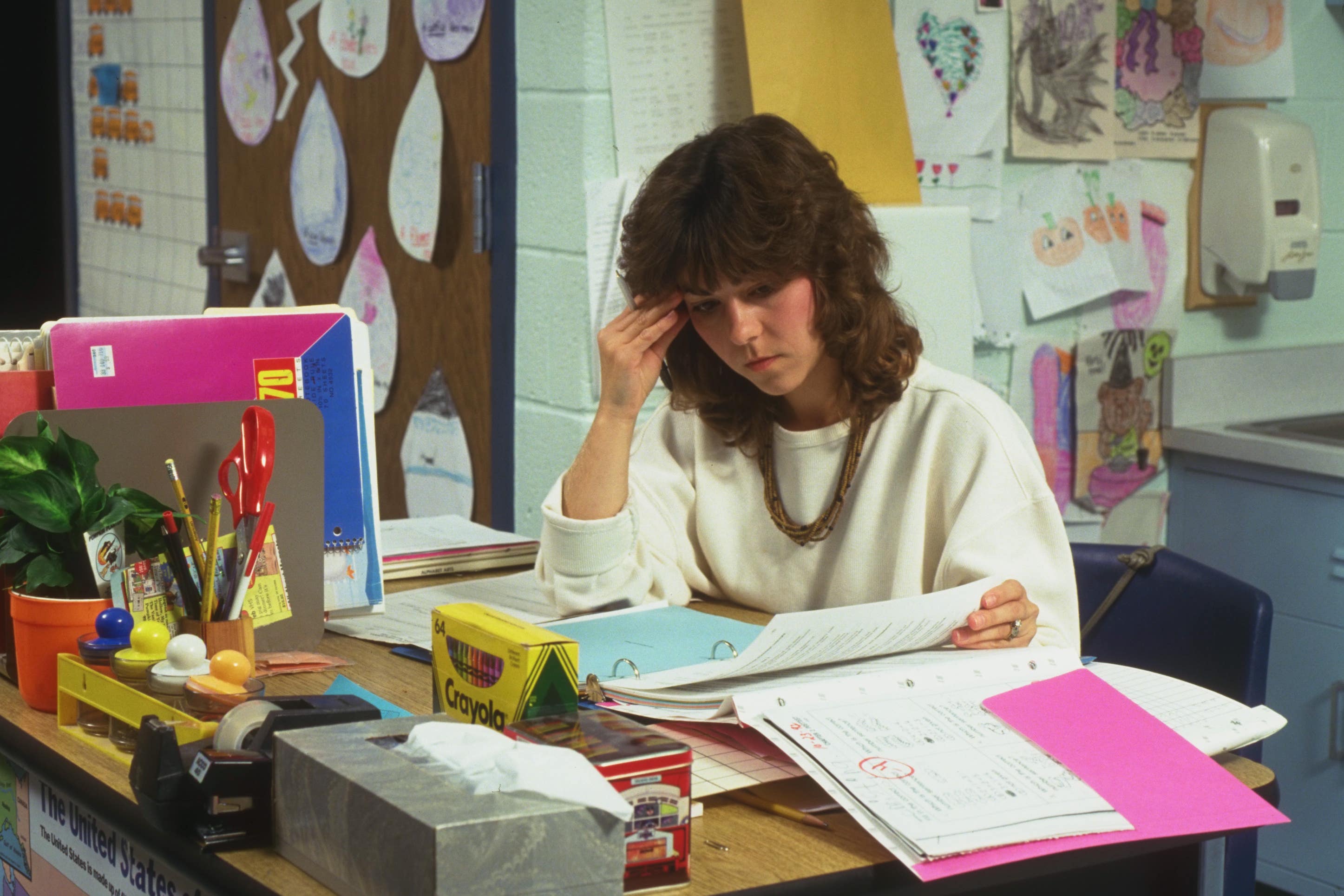Nearly half of school leaders needed professional help with mental health – poll
The findings come after a coroner concluded that an Ofsted inspection ‘likely contributed’ to the death of headteacher Ruth Perry.

Nearly half of school leaders in England needed professional support for their mental health or wellbeing in the last year, a survey has suggested.
School leaders cited Ofsted pressures as the factor which had the greatest impact on their mental health over the last year, according to a poll by the NAHT school leaders’ union.
Paul Whiteman, general secretary of the NAHT, warned school leaders will be forced to leave the profession for their own health unless action is taken.
The findings come after a coroner concluded last week that an Ofsted inspection “likely contributed” to the death of headteacher Ruth Perry.
Mrs Perry killed herself after an Ofsted report downgraded her Caversham Primary School in Reading from its highest rating to its lowest over safeguarding concerns.
The survey, of 1,890 school leaders in England in September and October, found 38% reported they had accessed professional support for their mental health or wellbeing in the last year.
A further 11% said they wanted to access professional support – but they either did not know how to, or it was unavailable to them.
More than eight in ten (84%) school leaders said their role had impacted the quality of their sleep in the last 12 months, according to the poll.
The report by the NAHT found about half (51%) of school leaders said they are considering leaving the profession within the next three years for reasons other than retirement – and nearly nine in ten (88%) cited the impact of the role on their personal wellbeing as a factor.
More than three in five (61%) of assistant and deputy heads surveyed said they did not aspire to headship, up from 53% in 2021.
We regularly hear from school leaders who feel pushed to the edge of despair
When asked about possible deterrents to headship, 91% of school leaders cited concerns about the role’s impact on personal wellbeing and 81% cited concerns about Ofsted inspection.
Mr Whiteman said: “These dire findings paint a really bleak picture of the unacceptable toll school leadership is taking on our members and their mental health and wellbeing.
“Parents and carers will no doubt be equally alarmed that school leaders are being left seeking support with their mental health, feeling worried, stressed and unvalued, struggling to sleep, and considering quitting the profession.
“Reluctance to take on the role of headteacher is now an established and rising trend which will inevitably impact the wider school eco-system and, ultimately, children’s education.
“We regularly hear from school leaders who feel pushed to the edge of despair. Without decisive action, I fear these dedicated educators will be forced to leave the profession for their own health, leaving more children without the inspirational leaders and teachers they need.”
The NAHT is calling on the Government to reform inspection and accountability measures, to scrap single-word Ofsted judgments and take further action to tackle workload.
A Department for Education (DfE) spokeswoman said: “We recognise the extraordinary service that headteachers, teachers and other school staff provide and are taking action to reduce the pressures on them where we can.
“We have doubled our mental health and wellbeing scheme for school leaders this year, backed by £1.1 million, and have launched the education staff wellbeing charter to help schools to prioritise staff wellbeing.
“Earlier this year Ofsted announced a number of changes to the way it inspects schools, taking into account the impact school inspections can have on teachers.”